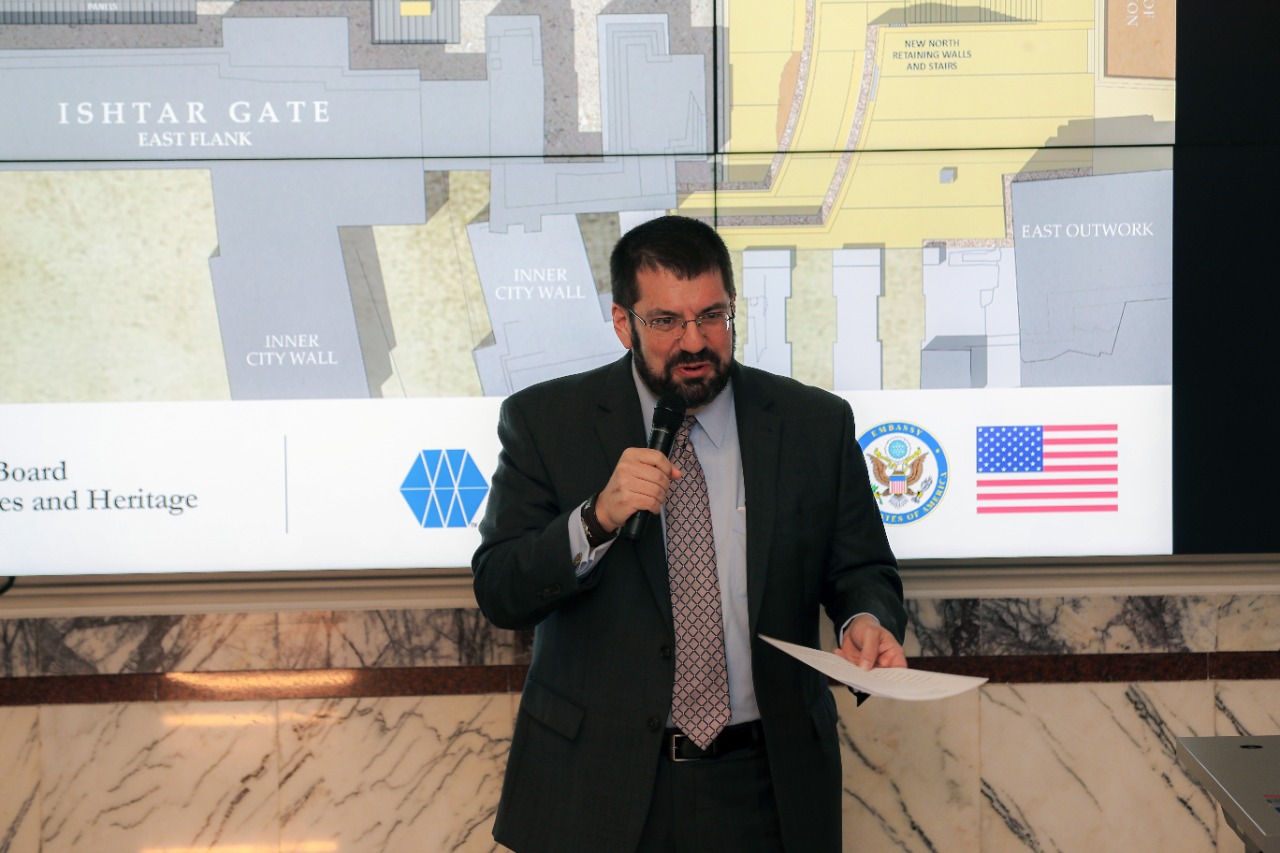The “American Space” at the American University of Iraq-Baghdad (AUIB) hosted a seminar on “The Future of Babylon Project: Ishtar Gate and Ninmakh Temple,” a cooperative arrangement with Iraq’s State Board of Antiquities and Heritage and the World Monuments Fund, with funding from the United States’ Embassy in Baghdad. Charge d’Affaires at the US Embassy in Baghdad, David Burger, attended the event and introduced the Project’s partners and members of its team, chief among whom was Program Director, Jeff Allen, who briefed the audience on the project.
“the event highlights AUIB’s own interest in archaeology,” said Counselor to AUIB President, Michael McClellan, pointing out that the University’s College of Archaeology and Ancient History would open in the near future, and that it would have as a partner the prestigious Sapienza University of Rome, which ranks first in the world in archaeological studies.
“The Future of Babylon Project,” that was launched in 2009, would serve as “a model” of site preservation, management, and presentation, with a hope that it would lead the way in the efforts at reviving Iraq’s many historical sites, according to Allen, who spoke of “the routine neglect and abuse” of the Babylon archaeological site “for the last 100 years,” including its recent “use as a military base.” Allen pointed out the absence of touristic facilities, such as restaurants, cafes, and public bathrooms in the site’s vicinity, speaking of the need for investments in such infrastructure, and the “economic opportunities” that such investments would yield, especially if the development of the site’s vicinity would “be done in a sustainable manner.”
